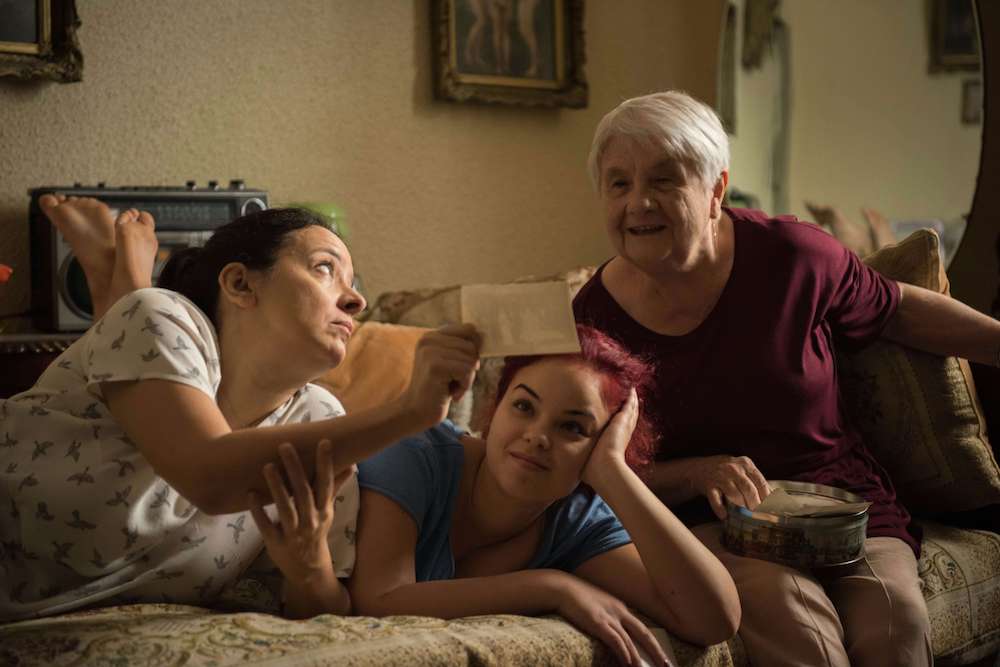Locarno Film review: ‘Alice T.’
By Jay Weissberg
LOS ANGELES (Variety.com) – Radu Muntean’s particular brand of undramatic Romanian realism works best when it’s possible to extend sympathy to his main characters; when likability is non-existent, the experiment falls flat. That’s the inescapable flaw of “Alice T.,” a slice-of-life look at a narcissistic 16-year-old fabulist of unredeeming unpleasantness who leads her mother and friends on a merry lark when she gets pregnant, claims to want the child, and then medically aborts without telling her family. A final, overextended scene appears to locate some kind of frightened remorse in the teen, but few will buy this kind of redemption. Muntean’s reputation with the festival crowd should guarantee a fair amount of travel, but not as much as his earlier films.
Characterized by flaming red hair and a hardened streak of intractability, Alice (Andra Guti) has just taken abortion money from her boyfriend Horatiu (Octavian Strunila), although she has no plans of going to the clinic. All hell breaks loose when her divorced mother Bogdana (Mihaela Sîrbu, always a welcome presence) realizes that her daughter is pregnant, but Alice counters that Bogdana, who adopted her as an infant, couldn’t understand what it’s like. Attitudes change when they go to the doctor and see the sonogram pictures — Bogdana’s maternal feelings override her anger, and she offers loving support.
With things calmer at home, Alice continues to bully her classmates (when she bothers to show up for school) and then takes abortion pills, which do their work while she’s watching TV with a friend. Blithely cleaning up the blood and treating it all as if it’s a bit of fun, she then spends family time pretending she’s still pregnant, weaving a cloak of lies that she wears with casual abandon. Clearly all the falsehoods are designed to control the world around her, and yet that realization offers more shoulder shrugs than compassion.
There’s just one scene of warming intimacy in the movie, when Alice asks her grandmother (Alexandrina Halic) about when she discovered that Bogdana had lost her virginity. The three generations sit on a bed giggling, sharing a loving moment, and yet, it’s so uncharacteristic of Alice and the film that it takes a few seconds to remember that even pathological liars can need a cuddle session. This doesn’t mean however, as attempted in the final sequence, that Alice has a genuine road to Damascus moment, and the script’s overreach here ends the film on a major false note. It’s a pity because there are times when Muntean’s attention to small details recalls why some of his other films offer superior satisfactions, as in a bathroom-set scene when Alice struggles under pressure to open the plastic packaging on a home pregnancy testing kit.
Relative newcomer Guti has no problem holding the screen, instilling the character with an uncontrollable self-centered energy that holds the attention even as it corrodes pity. But most of our sympathy goes to Sîrbu’s Bogdana, who seems to have tried her best to raise her daughter largely alone, though it would have been good to have a little more sense of the woman. Cinematographer Tudor Lucaciu creates some striking images, showcasing Alice’s Raggedy-Ann red hair and using it as a focal point for a teenager eager to draw attention to herself.

